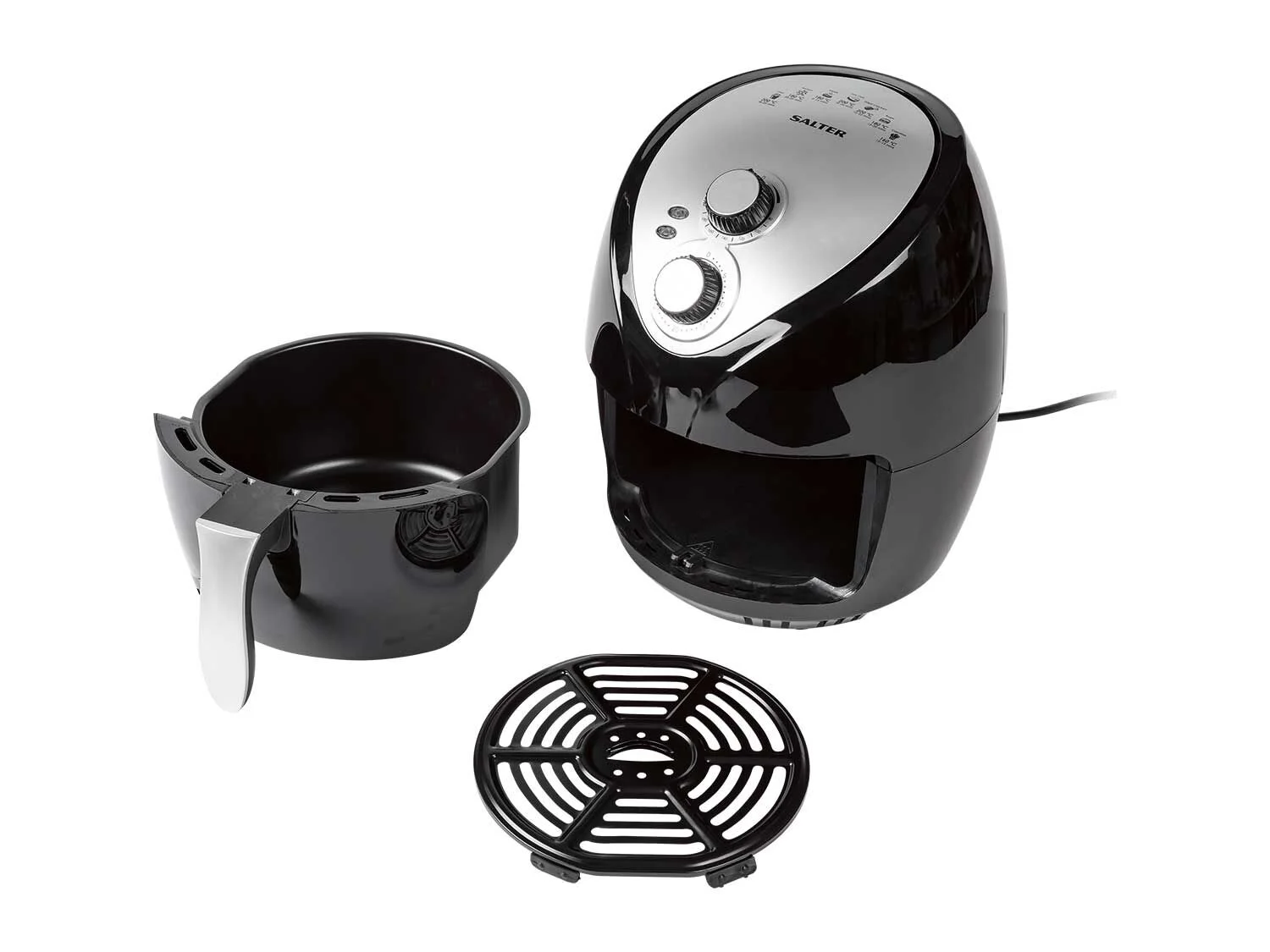May, 31st 2024
In recent years, air fryers have skyrocketed in popularity, finding their way into countless kitchens worldwide. Promoted as a healthier alternative to traditional frying methods, air fryers promise the same crispy texture and delicious flavor with significantly less oil. But why exactly is frying in an air fryer considered healthier, and how does it help in the battle against overweight and obesity? Let’s delve into the science and benefits behind this modern kitchen marvel.
1. Significantly Reduced Oil Consumption
One of the most compelling reasons air fryers are healthier is their minimal use of oil. Traditional deep frying involves submerging food in hot oil, which can lead to oil absorption, resulting in high-calorie content. In contrast, air fryers use rapid air technology to circulate hot air around the food, requiring only a tiny amount of oil—often just a tablespoon or less. This drastically reduces the overall fat and calorie content of the food.
2. Lower Calorie Intake
Since air fryers use less oil, the foods cooked in them have fewer calories. For individuals aiming to lose weight or maintain a healthy weight, cutting down on calorie intake is crucial. For example, a traditionally deep-fried chicken breast can have up to 400-500 calories, whereas an air-fried chicken breast might only have about 200-250 calories. This difference can make a significant impact over time, helping to prevent weight gain and promote weight loss.
3. Reduced Risk of Trans Fats and Harmful Compounds
Traditional frying methods, especially when using reused oil, can produce harmful compounds like trans fats and acrylamides. Trans fats are linked to an increased risk of heart disease, while acrylamides, which form in some starchy foods at high temperatures, are potential carcinogens. Air frying reduces the formation of these harmful compounds, making your meals healthier and safer.
4. Retains Nutrients Better
Air fryers cook food quickly and at lower temperatures compared to traditional frying. This method helps retain more nutrients that are often lost in the prolonged, high-heat process of deep frying. Vitamins and minerals in vegetables, for instance, remain more intact, providing better nutritional value.
5. Encourages Healthier Eating Habits
Using an air fryer can encourage healthier eating habits. Since air fryers can prepare a wide range of foods—vegetables, lean meats, and even healthier snacks like kale chips—users are more likely to experiment with nutritious recipes. Additionally, the convenience and speed of air frying make it easier to opt for homemade meals over fast food, which is often higher in unhealthy fats and calories.
6. Enhanced Flavor without Added Fat
Air fryers are designed to enhance the natural flavors of food without relying on excessive oil. The circulating hot air creates a crispy exterior similar to traditional frying but without the greasiness. This means you can enjoy the texture and taste of fried foods while consuming fewer calories and less fat, aligning with weight management goals.
7. Portion Control
Air fryers often come with smaller cooking baskets, which naturally limits portion sizes. This built-in portion control can prevent overeating, a common issue with traditional frying where large batches of food are often cooked at once. Smaller portions contribute to better calorie management and can aid in weight loss efforts.
Conclusion
Incorporating an air fryer into your cooking routine can be a game-changer for your health and weight management. By significantly reducing oil consumption, lowering calorie intake, minimizing harmful compounds, and promoting healthier eating habits, air frying offers a superior alternative to traditional frying methods. As part of a balanced diet and healthy lifestyle, air fryers can play a pivotal role in combating overweight and obesity, helping you achieve and maintain a healthier weight without sacrificing the enjoyment of your favorite foods.
